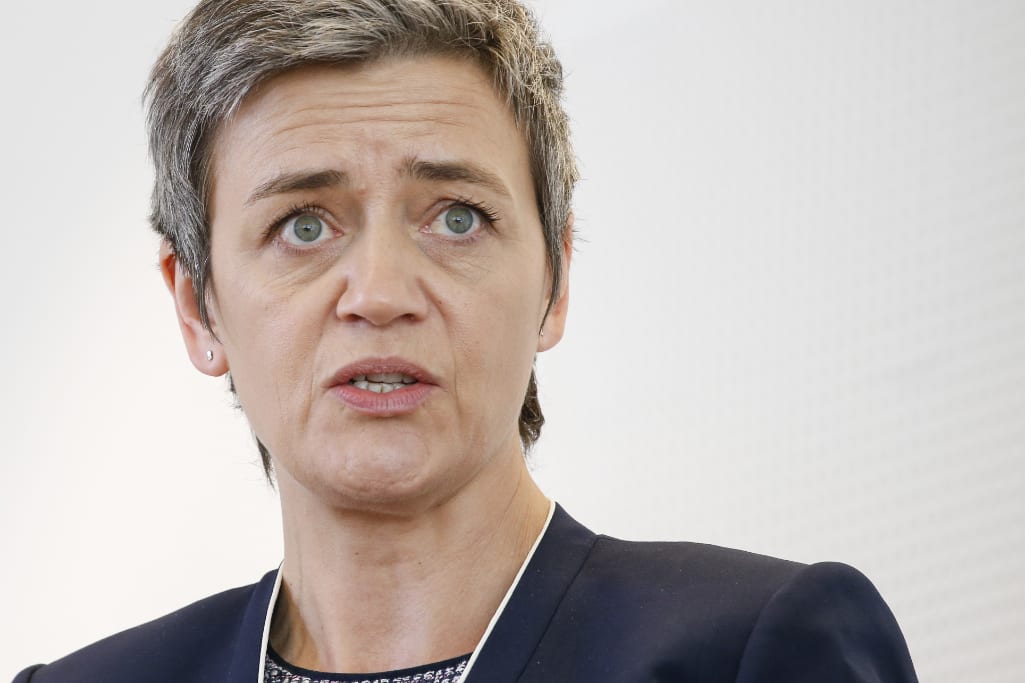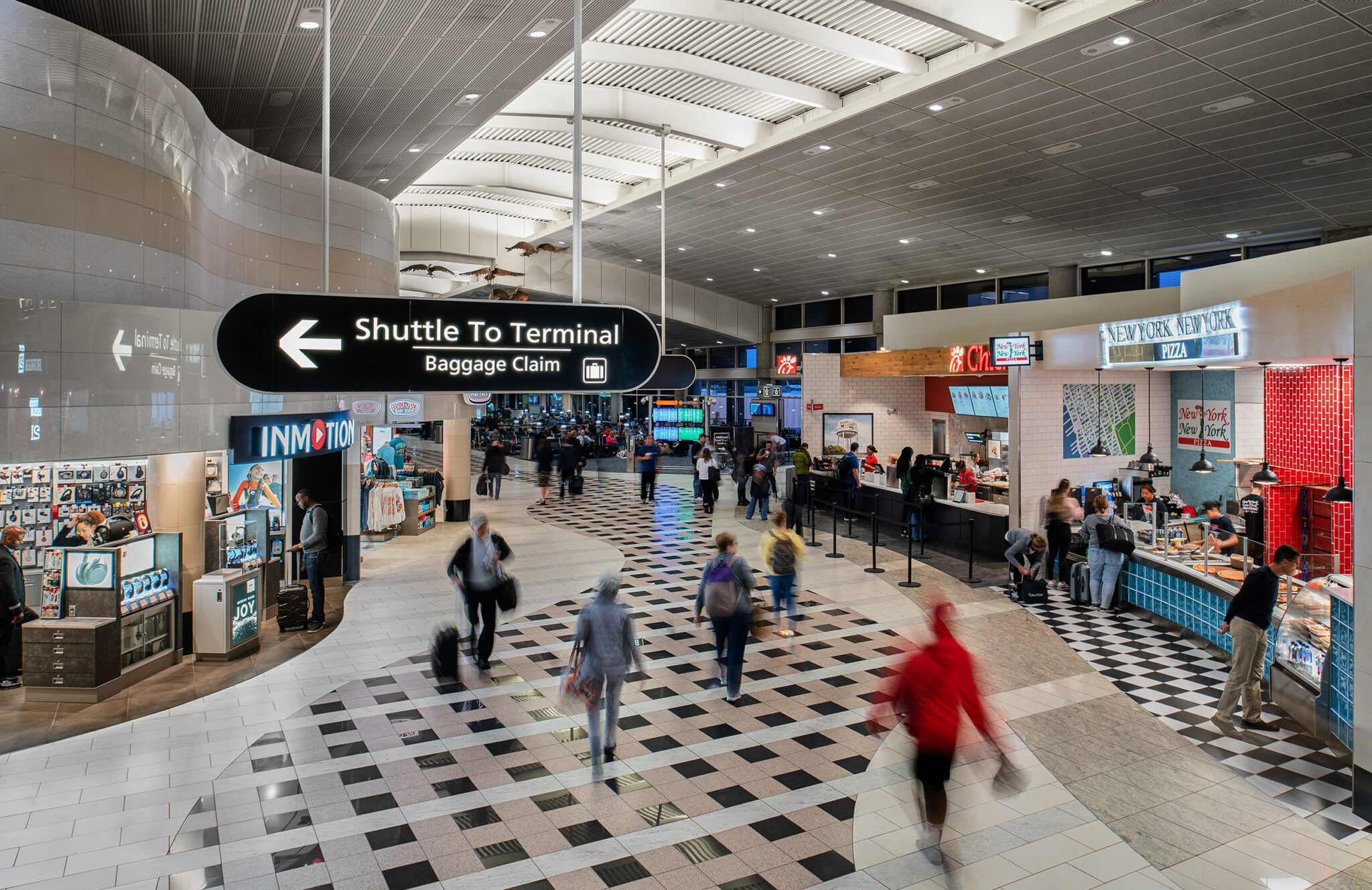European Regulators Will Focus on Distributors’ Restrictive Airline Contracts

Skift Take
European Commission antitrust regulators left an array of unanswered questions when they opened an investigation into the business practices of airline distribution-tech providers Amadeus and Sabre.
But one thing we do know is that investigators have asked Amadeus and Sabre preliminary questions about their so-called “full content” clauses, which require airlines to share virtually all of their flight information and fares with the global distribution system in question. However, there have been a variety of loopholes, too, so the notion of full content is somewhat of a misnomer.
The tech giants typically coupled that contract language with a parity provision that requires the airlines to offer all of their fares at equivalent prices and comparable volumes of inventory as the airlines distribute elsewhere, with no extra fees.
At issue is whether the practice of preventing airlines from saving some of their offers for exclusive distribution outside of Amadeus and Sabre — such as through an airline’s own website or an upstart rival tech provider — discourages other tech companies from offering competitive services.
Full content clauses are one element in the contracts between distribution tech providers Amadeus and Sabre on the one hand, and airlines and travel agents on the other, that European antitrust investigators will check to see if they restrict competition in breach of European Union antitrust rules.
In December 2016, American Airlines won a U.S. trial against Sabre in which a jury deemed some Sabre’s business practices, including the full-content provisions that were renewed in 2011, to have been anti-competitive.
Sabre is appealing the decision, which would require it to pay the airline $15 million and possibly to eliminate full-content provisions from all of its airline contracts. If Sabre loses, it seems reasonable that Amadeus and Travelport would likely adjust their own contract language, too.
A Short History of Full Content
A look back at testimony given by airlines, Amadeus, and Sabre during U.S. lawsuits in the past decade helps to trace the history of this contentious contractual language and provide context for the sometimes-bitter airline and global distribution system relationship.
In the early 2000s, airlines complained that Amadeus, Sabre, and Travelport charged excessive fees for distribution services, and also couldn’t handle some airline content, such as ancillary services, in a nimble way.
In the lead-up to negotiations for multi-year contracts renewing in 2006, several airlines told Amadeus, Sabre, and Travelport that they were prepared to withhold some of their content from them unless the middlemen lowered their fees.
At the time, many airlines were offering “Web-only,” or “e-fares” — meaning airfares only available by booking through the airline websites and not through Amadeus, Sabre, or Travelport’s distribution systems. Airlines wanted to grow this direct business, which bypassed the distribution systems.
United, for example, took a carrot approach with travel agents. It offered payments of $5 per ticket to travel agencies that booked Web fares directly on its site. This offer was significant in that the airline offered compensation to agencies roughly comparable to the fees the tech middlemen paid agencies for using their reservation systems for flight bookings.
In early 2006, American Airlines took a stick approach with agents. It tempted travel agents with access to deeply discounted Web fares. However, it also told agents it would add a $3.50 surcharge for every segment, essentially a leg of a flight, booked via Amadeus, Sabre, and Travelport. Agents could avoid the surcharge, though, if they booked through an alternative distribution system that charged American lower fees — most prominently G2 SwitchWorks.
In the 2006 contract negotiations, Amadeus, Sabre, and Travelport added language requiring airlines to share all of their flight information and to make all fares available to all channels at the same price.
To be sure, the global distribution systems had attempted to add such language in the past. But the companies pursued the task with renewed vigor during the 2006 wave of negotiations.
Many of the major airlines accepted the terms. Consider this change: In 2004, Sabre processed about half of its bookings under full-content terms. Today it processes a vast majority of its bookings via full-content terms. Amadeus saw a similar shift. Travelport’s share is unknown.
After 2006, tech providers that had attempted to challenge the middlemen left the market. ITA Software abandoned its attempt to create an alternative global distribution system, and began to focus on building an airline hosting system. The same group that owned Sabre acquired G2 SwitchWorks, and sold its software code to Travelport. Farelogix turned to a focus on direct-connect technology for airlines and is currently on track to be acquired by Sabre.
In the past two years, American has renewed its direct distribution efforts, as have some other foreign airlines.
Market Transparency
Amadeus, Sabre, and Travelport have long justified these contract provisions in several ways. Their key argument is that full content enables them to serve as a neutral marketplace enabling consumers, via travel agencies, to shop with a complete view of available options.
By not giving agencies access to full content, airlines would sometimes be able to charge some consumers more than others if those consumers shopped for tickets via a reservation system that didn’t have access to the best-priced tickets.
Supporters of the global distribution systems have made an implied side argument that the largest airline groups, which are bigger than the tech giants by market capitalization and revenue, have a potential to harm consumers, too. Even assuming that more competition among tech providers would lead to lower booking fees paid by airlines, that wouldn’t necessarily mean that the airlines would pass the savings onto consumers, especially in the light of recent airline market consolidation.
The middlemen say that travel agencies also benefit from the current system. Agencies would otherwise likely incur higher tech investment costs to adapt to a potentially confusing array of technological systems and commercial arrangements advanced by the airlines.
Some industry observers add that travel agencies, which often run on thin margins, rely on the current financial incentives offered by Amadeus, Sabre, and Travelport and would risk losing some of that money under a different industry dynamic.
Sabre said in a statement that it “believes full content, or parity clauses, are in the best interest of consumers and serve to provide them with comparability and transparency, enabling consumers to easily and efficiently shop and book the best flights that meet their needs.”
Amadeus said that it “stands for fairness and neutrality in airline distribution, providing non-discriminatory and neutral market access for airlines and choice for consumers and travel buyers. It is well documented that the neutral marketplace provided by the [global distribution system] is facilitating comparison and choice, thus providing European citizens with competition among airlines resulting in lower ticket prices.”
A few U.S. lawsuits against Sabre since the mid-2000s have also emphasized full content as a contentious issue.
But the European Union’s antitrust investigators will look at Sabre and Amadeus’ contracts through the lens of European competition law, which is notably different than U.S. law, for example. EU Competition Commissioner Margarethe Vestager said in a speech in 2015 that “dominant companies have a responsibility not to abuse their powerful market position.”
Supporters of the global distribution systems note that, in the U.S., overall airline distribution costs have fallen, as a share of overall expenses, in recent years, as Skift noted earlier this month. Airline ticket prices overall have gone down on average in many countries, partly because of the rise of low-cost airlines, many of which have often opted not to use the technological middlemen for distribution services. Against that backdrop, it may be challenging for investigators to prove pricing harm to consumers.
Skift Research took a look at the issues this month in a report, “The State of Airline Distribution 2018.” The report is, on balance, sympathetic to the global distribution systems, given the various factors at play.
So expect more questions about full content, parity, and competition in the coming months. Perhaps European regulators can break some new ground on the issue.





